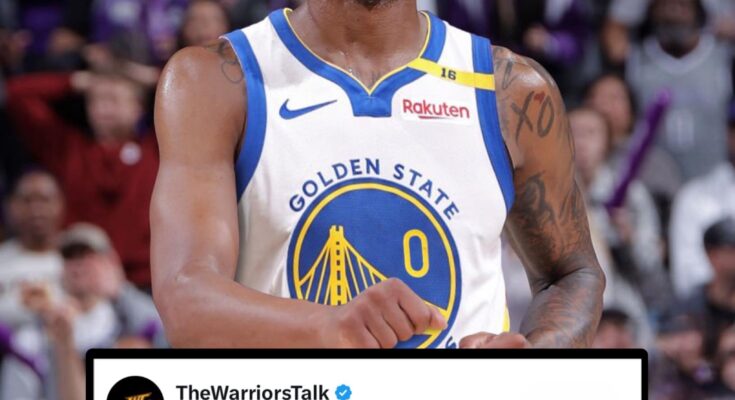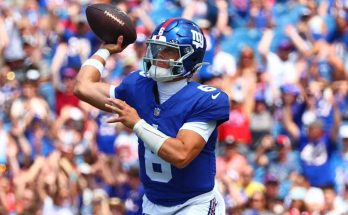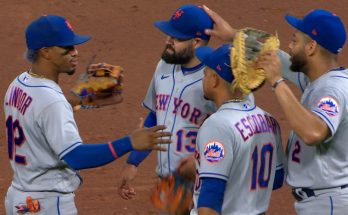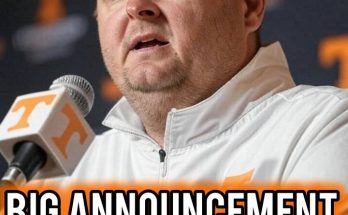The Sacramento Kings have been making some significant moves recently as they continue to build on their promising roster and look toward the future. One of the latest reports surrounding the Kings is that they have reportedly offered Malik Monk in trade discussions with the Golden State Warriors for Jonathan Kuminga, a move that has drawn attention for its potential impact on both teams. However, it has been revealed that the Warriors turned down Sacramento’s offer, which raises questions about the direction both franchises are heading in.
Malik Monk, who joined the Kings in the 2022-2023 season, has emerged as one of the most valuable contributors on Sacramento’s roster. He provides an offensive spark off the bench, and his shooting ability, particularly from beyond the arc, has been a major asset for the team. Monk’s scoring versatility allows him to play both on and off the ball, making him an ideal complement to the Kings’ star player, De’Aaron Fox. His ability to stretch the floor and provide an instant scoring boost in any given game has made him one of the most sought-after players in the league for teams looking to bolster their backcourt depth.
Kuminga, on the other hand, represents a different type of player. A young, explosive forward with immense athleticism, Kuminga has shown flashes of star potential since entering the league as the 7th overall pick in the 2021 NBA Draft. His combination of size, length, and raw talent makes him a tantalizing prospect, and the Warriors have been patient with his development. While Kuminga’s consistency and basketball IQ have often been points of criticism, there’s no denying the upside he possesses. He can contribute on both ends of the floor and offers the Warriors versatility in terms of lineup flexibility.
At first glance, this proposed trade offer may seem like a relatively straightforward exchange—two talented players, each offering something different to their respective teams. But when you dig deeper, the trade’s implications on both franchises become more complicated, and it’s easy to see why Golden State turned down the Kings’ proposal.
First, from a team-building perspective, the Warriors have been very careful with how they develop their young players. While the team is still led by their veteran core of Stephen Curry, Klay Thompson, and Draymond Green, they have invested heavily in younger talents like Kuminga, Moses Moody, and James Wiseman (before trading him). These players are expected to eventually step up and take on larger roles as the Warriors’ championship window starts to close.
The Warriors’ reluctance to trade Kuminga for Monk is rooted in their long-term vision. Kuminga, despite his inconsistencies, has shown that he has the tools to be a two-way player capable of contributing in meaningful playoff minutes. With Golden State’s core aging, the Warriors need to ensure they have enough youthful talent to transition into the next phase of the franchise. While Monk is a valuable player, particularly in terms of scoring, his skill set doesn’t necessarily align with what the Warriors need in terms of long-term building blocks. The Warriors, having tasted the ultimate success with their recent championships, seem committed to the idea of developing young players who can eventually contribute at a high level in the postseason, rather than relying solely on veterans.
In contrast, the Kings are in a very different phase of their organizational trajectory. For Sacramento, the window for championship contention is slowly opening, but it’s still not fully realized. They have a young, dynamic core built around Fox and Domantas Sabonis, and they’ve made impressive strides in recent seasons. The addition of Monk in 2022 proved to be a strong move, but the Kings’ management may feel that the team still lacks that final piece to take them over the hump. Trading Monk for Kuminga could be seen as a move to add a high-ceiling prospect who, when developed, could grow into a player who could anchor the defense and contribute offensively. For a franchise that has endured years of mediocrity and rebuilding, the Kings might be hoping that Kuminga’s upside could propel them to the next level.
One of the most intriguing aspects of this trade offer is the contrast in playing styles between Monk and Kuminga. Monk is a guard known for his ability to score, shoot, and provide a spark off the bench, but he isn’t known for being a particularly strong defender. His biggest impact comes on the offensive end, where he can heat up quickly and give his team a much-needed boost. While this fits well with the Kings’ up-tempo, offensive-minded playstyle, it’s also a factor that the Warriors may have found underwhelming when considering Kuminga’s defensive versatility and potential. Golden State has long been known for its emphasis on defense, and Kuminga’s potential as a two-way player gives him more value in their system.
Moreover, Sacramento’s approach to team-building also plays a significant role in their trade discussions. With their current roster, the Kings are in the unique position of being a team on the rise, but still in need of additional talent to become a true contender. While Monk’s value to the Kings is clear, the idea of acquiring a young player with star potential like Kuminga may feel like an opportunity too good to pass up. As the Kings continue to build a culture of success, the possibility of adding a player like Kuminga—one with the upside to eventually develop into an elite defender and versatile forward—may be seen as an investment in the future. While Monk’s scoring ability is undeniable, the Kings may have felt that his ceiling, especially in a system that relies so heavily on defense, might limit the team’s long-term aspirations.
In Golden State’s case, rejecting this trade offer likely comes down to a few factors, including Kuminga’s untapped potential and the need for the Warriors to develop their young players for the future. The Warriors have always been a team that thrives on versatility and the ability to adapt in various situations. Kuminga, despite his inconsistency, has the potential to be that versatile player who can contribute across multiple areas of the game. His length, athleticism, and defensive ability make him an appealing asset for a team like Golden State, who values multi-dimensional players that fit into their positionless style of play.
There’s also the matter of the Warriors’ long-term salary cap situation. While Monk is a solid contributor, his contract, as a lower-paid player, might not make him as attractive to the Warriors from a financial standpoint. Kuminga, despite being on a rookie deal, still provides more flexibility for Golden State’s future cap space. Trading him for a player like Monk would not only deprive the Warriors of a potential future star but could also disrupt their ability to maneuver financially in the coming seasons. The Warriors have a tight championship window, but they also need to maintain their flexibility to build for the future once their current core ages out of contention.
From Sacramento’s perspective, the failure of this trade deal also raises questions about their current trajectory. They are clearly trying to strengthen their roster, but it also highlights the disparity in how teams view their own talent. For Sacramento, offering Monk—a key player off the bench—for Kuminga shows their confidence in the latter’s upside and their commitment to improving their team by adding high-ceiling prospects. However, it also signals to the Kings that Golden State is looking to keep its young players, which could be a signal that the Warriors still see Kuminga as a potential cornerstone of the future.
The potential fallout from such a trade proposal is worth considering. If the Kings continue to make offers for young players with high ceilings, they may eventually find a partner willing to part with a top prospect or a player who fits into Sacramento’s long-term plans. However, this trade negotiation also emphasizes the need for the Kings to refine their approach to acquiring talent. The Warriors’ decision to reject the deal shows that other teams might not view Monk as the game-changing asset Sacramento believes him to be, especially when compared to a player like Kuminga who has more upside.
Ultimately, the failure of the trade could be seen as a sign of the Warriors’ commitment to their long-term vision and the belief in their young talent. The Warriors have a championship pedigree, but they also understand that the future is equally as important as the present. On the other hand, Sacramento will likely continue to explore potential trades and roster moves to strengthen their squad, but they may need to adjust their approach and recognize that acquiring a player like Kuminga will require a different kind of negotiation. The offer of Monk for Kuminga may have been rejected, but it signals the ongoing evolution of both teams as they strive to contend for championships while also keeping an eye on the future.



